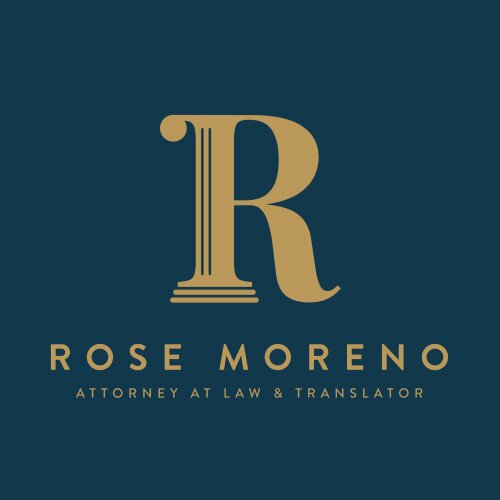Best Private Client Lawyers in Panama
Share your needs with us, get contacted by law firms.
Free. Takes 2 min.
Or refine your search by selecting a city:
List of the best lawyers in Panama
Panama Private Client Legal Articles
Browse our 1 legal article about Private Client in Panama written by expert lawyers.
- Panama Private Interest Foundations: Asset Protection Guide
- Private Client in Panama: Using Corporations and Private Interest Foundations (PPIF) For Wealth, Privacy, and Succession Panama Private Interest Foundations (PPIFs) are a hybrid between a trust and a company, created under Law 25 of 1995, used by high-net-worth individuals for asset protection, privacy, and succession planning. Unlike a Panama... Read more →
About Private Client Law in Panama
Private Client law in Panama focuses on legal services that cater to individuals, families, and business owners seeking to manage, protect, and transfer personal wealth and assets. This area of law includes estate planning, wills, trusts, tax planning, asset protection, succession planning, and related fiduciary services. With a favorable legal and financial environment, Panama is a recognized hub for international private clients looking for confidentiality, asset diversification, and reliable legal structures.
Why You May Need a Lawyer
Individuals and families might require a Private Client lawyer in Panama for a variety of reasons. Common examples include:
- Setting up trusts or foundations to manage and protect assets
- Drafting, updating, or executing a will
- Ensuring local and international tax compliance
- Planning for inheritance and succession to minimize disputes
- Managing cross-border assets
- Handling probate proceedings after the death of a loved one
- Structuring charitable donations or family businesses
- Resolving disputes involving estates or trusts
Local Laws Overview
Private Client matters in Panama are governed by a blend of civil, tax, and financial laws. Notable aspects include:
- Wills and Succession: Panama's Civil Code regulates inheritance and succession matters. Forced heirship rules apply, requiring a portion of the estate to pass to close relatives.
- Trusts and Foundations: Panama offers flexible and confidential structures for asset protection and estate planning, such as the Private Interest Foundation (PIF) and Panamanian trusts.
- Taxation: Residents are taxed on their worldwide income, while non-residents are typically taxed only on Panama-sourced income. Certain foundation and trust structures may provide tax advantages, but planning should take into account international tax transparency laws.
- Probate Process: Upon death, the estate typically goes through probate in local courts, but planning tools like foundations can streamline or avoid this process.
- Foreign Assets: Panama recognizes foreign wills, but a local will is often recommended for assets located within Panama to facilitate administration.
Frequently Asked Questions
What is a Private Client lawyer in Panama?
A Private Client lawyer in Panama specializes in providing legal advice and services related to estate planning, asset protection, trusts, wills, probate, family wealth, and related tax matters for individuals and families.
Do I need to be a resident of Panama to set up a trust or foundation?
No, Panama allows both residents and non-residents to establish trusts and foundations. These structures are popular with international clients due to the country’s flexible legal system and privacy protections.
What is a Private Interest Foundation (PIF)?
A Private Interest Foundation is a Panamanian legal entity used for asset protection, estate planning, and succession. It functions similarly to a trust but follows civil law principles and provides confidentiality.
Does Panama recognize foreign wills?
Yes, Panama can recognize and enforce foreign wills, but it is recommended to have a local will for assets located within the country to simplify legal procedures.
Are there forced heirship rules in Panama?
Yes, Panama has forced heirship provisions under its Civil Code, which dictate that a minimum portion of the estate must be left to close family members, such as spouses, children, or parents.
How are estates taxed in Panama?
Panama does not have inheritance or estate taxes. However, income generated by the estate may be subject to income tax. Proper planning can help minimize tax burdens.
Can foundations or trusts help avoid probate in Panama?
Yes, assets held in a Panamanian foundation or trust typically do not go through the local probate process, offering a smoother and more private transfer of wealth.
How can I protect my assets in Panama?
Using legal structures like trusts and foundations can offer enhanced asset protection from creditors, lawsuits, and political instability, but professional legal advice is essential for proper implementation.
What happens if I die without a will in Panama?
If you die intestate (without a will), Panamanian law determines how your assets are distributed according to statutory inheritance rules, which may not reflect your personal wishes.
How do I choose a reputable Private Client lawyer in Panama?
Look for lawyers or law firms with experience in estate planning, trusts, and cross-border matters. Verify their credentials, reputation, and seek referrals or reviews before engaging their services.
Additional Resources
Those seeking more information can consult the following organizations and bodies:
- Supreme Court of Justice of Panama: Oversees probate and succession procedures.
- Panamanian Bar Association (Colegio Nacional de Abogados): Provides lists of certified lawyers and legal guidance.
- Superintendence of Non-Financial Entities: Regulates fiduciary service providers, including trustees and foundation councils.
- Ministry of Economy and Finance: Responsible for taxation and inheritance matters.
- Panama Private Wealth Associations: Offer information and updates on best practices.
Next Steps
If you think you need legal advice or support regarding Private Client matters in Panama, consider the following steps:
- Define your goals and what you hope to achieve, such as setting up a trust, preparing a will, or resolving inheritance matters.
- Gather all relevant documents, including identification, property deeds, and existing wills or legal structures.
- Research and select a qualified Private Client lawyer or law firm based on expertise and reputation.
- Schedule a consultation to discuss your situation in detail and receive tailored legal advice.
- Stay informed and actively participate in the planning and decision-making process to ensure your interests are protected.
Lawzana helps you find the best lawyers and law firms in Panama through a curated and pre-screened list of qualified legal professionals. Our platform offers rankings and detailed profiles of attorneys and law firms, allowing you to compare based on practice areas, including Private Client, experience, and client feedback.
Each profile includes a description of the firm's areas of practice, client reviews, team members and partners, year of establishment, spoken languages, office locations, contact information, social media presence, and any published articles or resources. Most firms on our platform speak English and are experienced in both local and international legal matters.
Get a quote from top-rated law firms in Panama — quickly, securely, and without unnecessary hassle.
Disclaimer:
The information provided on this page is for general informational purposes only and does not constitute legal advice. While we strive to ensure the accuracy and relevance of the content, legal information may change over time, and interpretations of the law can vary. You should always consult with a qualified legal professional for advice specific to your situation.
We disclaim all liability for actions taken or not taken based on the content of this page. If you believe any information is incorrect or outdated, please contact us, and we will review and update it where appropriate.
Browse private client law firms by service in Panama
Panama Attorneys in related practice areas.
Browse private client law firms by city in Panama
Refine your search by selecting a city.










